Screenshot of Tuesday’s Humboldt County Board of Supervisors meeting.
###
The Humboldt County Board of Supervisors on Tuesday gave its final stamp of approval to a $1 million funding request to pay for emergency repairs to the earthquake-damaged grandstands at the Ferndale Fairgrounds.
The board authorized the initial funding request during a special meeting at the end of last month and directed staff to return to the board if additional funds were required. Despite a bit of confusion on the matter, yesterday’s agenda item was not a request for additional funding but a bookkeeping item to document the increase in expenditures to the Department of Public Works and approve a construction agreement with Aquatic Designing, Inc. and Mobley Construction.
Speaking during Tuesday’s meeting, County Administrative Officer (CAO) Elishia Hayes reminded the board that the funds would come from the 2020 Finance Plan and would, essentially, serve as a loan from the county to the county.
“These are dollars that are grown from ourselves,” Hayes said. “These dollars are pretty strictly available for county infrastructure repair and replacement needs. … This is the last remaining availability in the Finance Plan, and there are no other foreseeable needs immediately on the table at this point in time where these funds could be utilized.”
Hayes added that she is “very cognizant [of] the current budget situation” and emphasized that the funds could not be used to fund county road improvements, “retain staffing or to reduce the General Fund structural deficit.”
“They do – very explicitly at this point in time – have to be used for infrastructure needs,” she said. “I just wanted to make that clear because I think there’s some confusion in the community on the purpose of these funds.”
Fourth District Supervisor Natalie Arroyo noted that the supplemental budget request attached to the agenda totaled $2 million and asked if staff could offer an explanation or correct the item. Hayes explained that the document accounts for $1 million in the revenue line and another million in the expenditure line, “so it nets to $1 million in overall increases in the budget but the overall transaction totals to $2 million.”
“Rest assured, it is a $1 million expenditure from the 2020 Finance Plan,” Hayes added. “Revenue from the 2020 Finance Plan [is] offset by a $1 million expenditure in fixed assets.”
Third District Supervisor Mike Wilson, who was not present during the June 29 special meeting, asked if the Humboldt County Fair Association has done any private fundraising to raise money for repairs to the grandstands.
“I mean, if you think about when Food for People had their disaster occur at their facility, there was a lot of private fundraising around that,” Wilson said. “The reason I ask it in this in this context is also because … I heard that Supervisor Arroyo was really adamant [that] the $1 million [would] not go over … that budget amount [and] if there’s work being done to prepare for the possibility that there may be the need for private funds [in addition].”
From a government standpoint, Hayes said the Fair Association could seek potential support from the Headwaters Fund for potential support, but deferred the question to Jill Duffy, interim general manager of the Humboldt County Fair Association.
“The short answer is no,” Duffy said. “Does that mean it is not being thought about? Absolutely it’s been thought about, [but] this is the short-term fix. This isn’t the final project. We’re gonna have to [put] together a more comprehensive capital campaign for the purpose of making all of the upgrades to the facility, and that’s going to include ADA and other types of amenities. When that time comes, it’s not going to be a million-dollar fix – it’s going to be significantly more.”
Right now, Duffy said, the Fair Association is focused on getting everything in line for the fair, which opens on Aug. 17. “I’m just moving forward with a lot of contracts at the moment,” she said. “After we get through the fair – provided that the structure is stabilized [and] we’re able to utilize them – we’ll need to sit down with the CAO’s office … and we will have to work out what some form of a repayment structure is going to be.”
There’s a possibility that the California Office of Emergency Services (CalOES) will reimburse the county for some of the money spent on repairs to the grandstands because it was damaged during the Dec. 20 earthquake, but it’s not a guarantee. CalOES will not pay for deferred maintenance at the fairgrounds.
Speaking during public comment, fair board member Clint Duey thanked the Board of Supervisors for moving so quickly to address the repairs to the grandstands and reiterated his board’s commitment to “working to repay our portion over time.”
“I just want to express our commitment to continuing that relationship,” Duey said, referring to the memorandum of understanding (MOU) the board was poised to approve. “I completely agree with you [that] there is deferred maintenance that needs to be addressed on the fairgrounds, but we’re not here again because of deferred maintenance issues. We’re here right now because of a major earthquake that caused significant damage across the county into a county building that is, quite frankly, beyond our means to do on our own.”
Following public comment, Wilson asked for more consistency in communications between the county and the Fair Association moving forward.
“It seems like a lot of the times when we’re talking about the fairgrounds and the fair board’s issues, it’s always [an] emergency [or] some issue has popped up,” he said. “Although we may have a relationship – and some would say it’s good – it doesn’t seem to be consistent. … I want to make sure that whatever MOU is structured here really speaks to that. About our … fiscal relationship but also from an infrastructure perspective.”
Wilson added that he would like to see some “visioning” from the fair board surrounding diversity, equity and inclusion, noting that he has seen vendors flying confederate flags flying at the fair. “That is something we have to deal with,” he said.
Duffy acknowledged Wilson’s concerns and agreed that there are “a number of items to be addressed” surrounding fiscal sustainability and diversity. “It’s not for me to have that conversation, but for the two boards to have that,” she said. “The question that we’re here for today is to do the authorization of the funding, in addition to the contracts. That’s the important stuff that needs to move forward.”
Second District Supervisor Michelle Bushnell made a motion to authorize both the construction contract and the MOU with the Fair Association. First District Supervisor Rex Bohn seconded, and emphasized that contractors have already broken ground on repairs to the grandstands. He reminded the board: “If we don’t vote for this today, we’re liable for all funds spent up into this point.”
“The big iron showed up today, it’s custom cut, so it’s not a return possibility,” he said. “If you remember, the motion that was made on [June 29] was that all structural fixes that we do now have to tie into the permanent fix. … So there’s so much more to this.”
The motion passed 5-0.
Expanding Telework Opportunities
The board also considered a request, brought forth by Bushnell, to revisit the county’s telework policy and potentially expand the availability of remote work to provide rural residents with better job opportunities.
“As we all know the rural areas – especially in my district [in] Southern Humboldt – [are] having an economic downturn and there are not a lot of jobs that are available down there for people who are wishing to stay in their communities,” Bushnell said. “Throughout our organization, there are a lot of jobs that aren’t necessarily forward-facing or public-facing, that could be very well served with teleworking. At this time, it is discretionary to the department heads, so my idea behind this is just to have a discussion and to ask the department heads’ input.”
The county’s existing telework program, adopted in February 2022, notes that “eligibility for teleworking is based on both the position and the employee and is subject to department approval” based on several guidelines surrounding productivity, dependability and responsibility. On top of that, teleworking agreements vary from regular/recurring to occasional/temporary, depending on the position and the individual employee.
Bushnell acknowledged that more teleworking opportunities often mean more work for department heads who would have to monitor their remote employees but asked if there would be any interest in revisiting the topic to accommodate people experiencing “transportation hardships” who live more than 20 miles from their place of work.
Human Resources Director Zachary O’Hanen noted that the county’s existing policy “doesn’t preclude us from doing this,” but reiterated the point that it is up to department heads.
“I can speak about my department,” he said. “One of the considerations that I’ve made is when gas prices were $6 a gallon, I said, ‘Hey, does anyone want to telework?’ So we have a number of employees in HR who telework at least one or two days a week.”
But Bushnell was asking for specific language that would guarantee teleworking opportunities for an individual in the future. “You’re not going to get someone to apply for a job if some if the department head says, ‘Well, I can take that back anytime’ and there’s no policy that accommodates it [to] ensure that they won’t be living two hours away and all of a sudden the department head says, ‘No, you can’t tell work anymore because I’m done with that and I don’t want to do that in my department anymore,’” she said.
Hayes noted that “there’s not necessarily a surety” that a prospective employee would be a good fit for a given position or someone who would be an effective employee.
“In my mind, this is more of a policy statement from the board that you want to encourage that this be utilized in a more robust fashion for those folks who do reside in those areas,” she said. “I think that this could be a separate policy statement whereby you keep intact the current policy, which does allow for revocation of telework if an individual isn’t meeting certain performance standards. I do think that’s important that we still retain that ability for an employee who has proven over time to be somewhat ineffective in the telework situation.”
Bushnell said she knew of existing county employees that want to telework but their supervisors will not let them “and they have no criteria for saying no, they just don’t want to do it.”
Bohn felt as though the vast majority of department heads were willing to accommodate remote employees in certain situations but expressed concern for a drop-off in productivity.
“I just remember hearing one time that the [effiency rating of people in the office] work[ing] at home was like 65 percent,” he said. “I don’t want to put the department head on the spot but I think that’s what John Ford said.”
Several department heads offered their perspective on the matter. County Clerk-Recorder and Registrar of Voters Juan Pablo Cervantes said he would be open to additional teleworking opportunities in his office but said there are currently too many variables.
“We’re a small county and our departments are lean, we’re scrappy and we’re having to do more with fewer resources, and that means that the nature of the job can change,” he said. “I see positions in my departments that I’m wanting to move towards telework [but] the hesitancy is, what happens when the ground under me changes and I’m having to redeploy them in a different facet that would require them to come into the office? … I can’t fathom, you know, the next few months or the next year or two allowing me that kind of discretion, even though I’d like to find those opportunities.”
Public Works Director Tom Mattson said he supported the county’s current policy of allowing department heads to decide where teleworking is appropriate.
“I would hate to get into a situation where it becomes a right and it’s grieved over who can do this and which position can and cannot,” he said. “I have a lot of people that do telework that operate very effectively. I have some that don’t operate very effectively teleworking – myself included. … Financially, structure-wise it is good for the county and it is good for employees, but don’t let it become a right that can be grieved.”
Speaking specifically to his department, Planning and Building Director John Ford raised the quality control issue.
“We can have people answering phones remotely, we have done that,” he said. “We can have people answering emails remotely, we have done that. One of the things we experienced when we do that is a lack of quality control, whereby the people who are remotely saying things aren’t being overheard by a senior staff or by a manager and are giving wrong information. Then we have a problem with somebody coming back in and saying, ‘You told me I could do this,’ and they can’t.”
It’s not a one-size-fits-all issue, he added.
Connie Beck, director of the county Department of Health and Human Services (DHHS), said she agreed completely with Mattson, adding that some of her employees are effective teleworkers while others are not.
“There [are] some programs that we work mostly in the field and having the ability to telework when you’ve been out in the field all day is a nice gesture for people,” she said. “And then we have people that have actually moved to other areas and are still working for us. So, because our staffing levels are so critical, we need to have the ability to do that. We are actually even looking at having training available in different areas of the county because one of the things that we worry about is the support and training that happens with individuals when they’re first hired.”
Following a brief public comment period and a bit of additional discussion from the board, Arroyo made a motion to keep the teleworking policy as is for the time being and directed staff to look into ways to strengthen the policy in a way that could accommodate more teleworking opportunities. She also asked staff to return to the board in roughly six months with some data on county employees who are already working remotely. Bushnell seconded the action.
The motion passed in a unanimous 5-0 vote.
###
Other notable bits from the meeting:
- The board unanimously approved a letter of complaint to the California Public Utilities Commission (CPUC) regarding recent local service interruptions with Frontier Communications. The letter was prompted by a recent four-and-a-half day outage that took out telecommunications – including 911 services – throughout the Mattole Valley. The letter calls upon the CPUC to address Frontier’s negligence. The item was approved in a unanimous 5-0 vote.
- The board also reviewed and approved several grant awards from the Friends of the Eel River (FOER) Mitigation and Remediation Grant Fund to fund sediment reduction programs associated with roads that serve cannabis cultivation sites and/or are located in impacted watersheds. FOER Executive Director Alicia Hamann said the grant funds would further projects that will “improve water quality for our native fish” for years to come. The board approved the list of grant applications in a 5-0 vote. You can read more about those projects here.
- The board also approved two amendments to the General Plan – a transitional and supportive housing zoning ordinance and an emergency shelter zoning ordinance – to conform to state laws surrounding housing projects and shelter. Both items were approved in 5-0 votes.
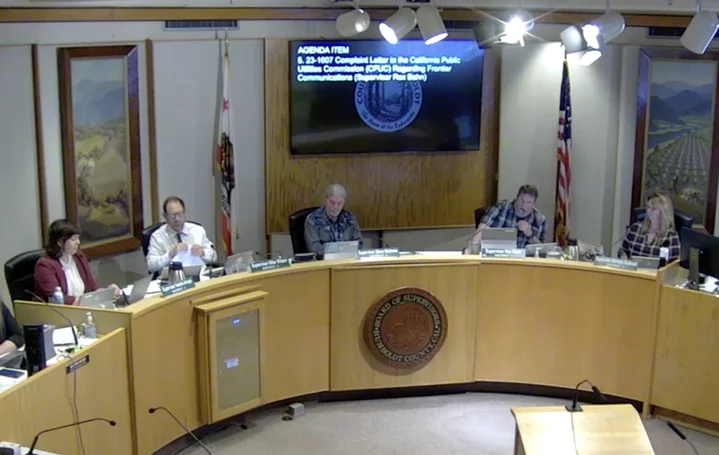
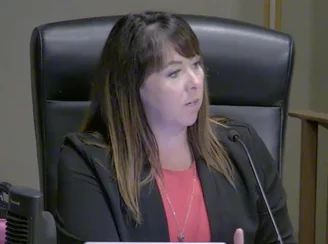
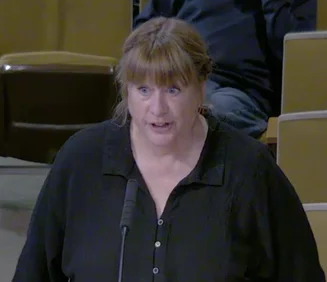
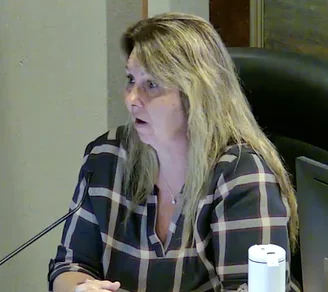
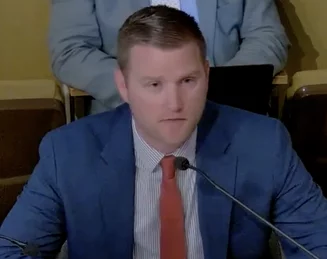
CLICK TO MANAGE